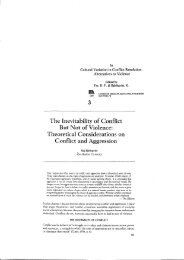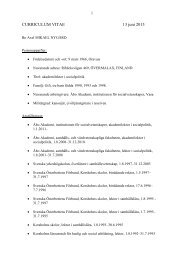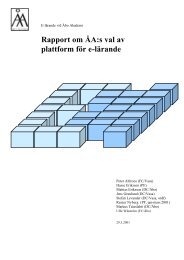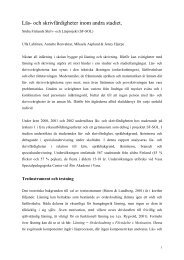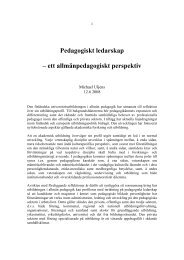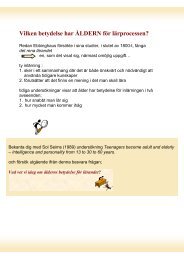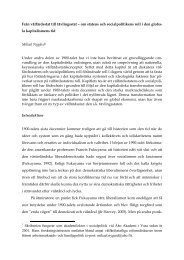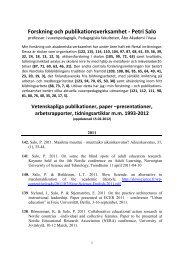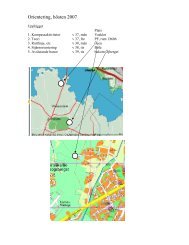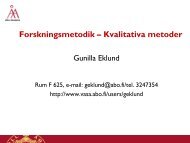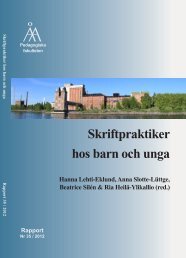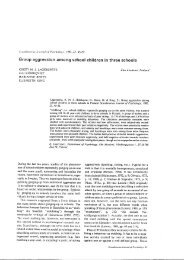Parties, Candidates and Citizens On-Line - Åbo Akademi
Parties, Candidates and Citizens On-Line - Åbo Akademi
Parties, Candidates and Citizens On-Line - Åbo Akademi
Create successful ePaper yourself
Turn your PDF publications into a flip-book with our unique Google optimized e-Paper software.
dramatically if a different coding had been applied for cases numbered 7, 8 <strong>and</strong> 9<br />
concerning the election system variable. Likewise concerning cases numbered 1, 6, 11, 13-<br />
14 <strong>and</strong> 16 for the media environment variable.<br />
The result of the QCA with an alternative coding for the election system-variable<br />
produced the following final expressions:<br />
F = 1 when abcde+BCDE+AcDe <strong>and</strong> F = 0 when BdE<br />
These expressions contained the expressions concerning normalization, Ace+BCDE, <strong>and</strong><br />
matched the exact expression concerning equalization, BdE, found in the main QCA<br />
analysis. Arguably, even though one new expression emerged for findings of<br />
normalization, this result increases the validity of the results from the main QCA.<br />
The results for the QCA with an alternative coding for the media environmentvariable<br />
yielded the following final solutions:<br />
F = 1 when BCE+Acde <strong>and</strong> F = 0 when AdE+BdE<br />
Again, either expressions, or large parts thereof, concerning normalization found in the<br />
main QCA can be traced in the findings of the alternative QCA. Regarding findings of<br />
equalization, the expression from the original QCA is exactly matched alongside one new<br />
expression. It should, however, be noted that the alternative QCA for the media<br />
environment produced two contradictory expressions where the same primitive Boolean<br />
expression had produced different outcomes.<br />
Even so, the two alternative QCA analyses have served to strengthen the validity<br />
of the findings of the original QCA. The original conditions for findings of normalization<br />
<strong>and</strong> equalization remained as parts of the new solutions, even though different variable<br />
coding was used.<br />
Discussion & conclusions<br />
The purpose of this analysis was to systematically explore the conditions, both country<br />
specific <strong>and</strong> methodological, for findings of either normalization or equalization. This was<br />
carried out through a meta-analysis of existing studies of on-line party competition. Metaanalyses<br />
were previously argued to be especially well suited for theory-development<br />
(Peters 1998: 160-1). Concerning the normalization <strong>and</strong> equalization theories, then: what<br />
can be learned from the results?<br />
Firstly, the findings could be regarded as an initial mapping of the conditions in<br />
which support for the theories have been found. As compared to the previous<br />
50



